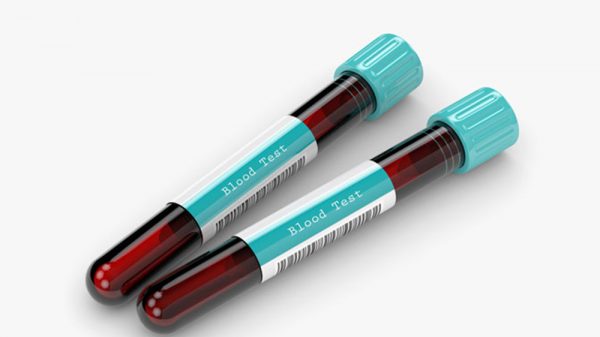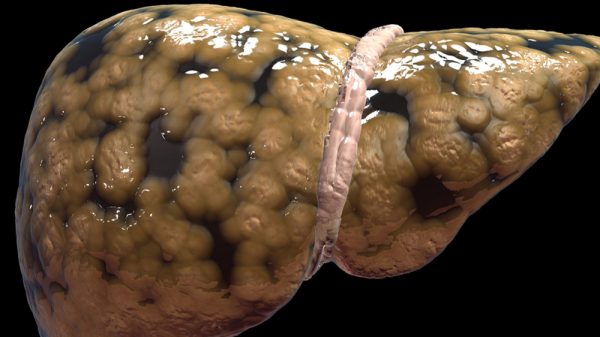Have you been diagnosed with autoimmune hepatitis? This is one of the autoimmune diseases that cause the body to attack healthy cells. It can sometimes lead to other conditions including autoimmune cirrhosis. This is a late-stage liver disease that involves severe scarring that prevents the liver from doing its normal functions. It’s important to treat the liver for cirrhosis because it can lead to liver failure over time. It’s also important to treat cirrhosis as early as possible to help prevent complications from developing. The immune system is the body’s first line of defense so this can cause various health problems.
Autoimmune diseases cause low-level or over-activity in the immune system. One of the main results is it prevents the body from fighting off attackers like infections. Autoimmune diseases result in the body producing “antibodies” that attack its own tissue instead of protecting the body from infection. This can cause various health issues that can be difficult to deal with. So it’s important to get treatment for this condition because it can lead to unwanted side-effects and other complications. However, sometimes drugs can effectively treat the early stages of autoimmune disease to help prevent the immune system from causing more damage to the body.
What’s an Autoimmune Disease?
This is an immune system disorder that results in the immune system activity becoming low-level or over-active. In this situation, the immune system actually starts attacking its own tissues, which is known as an autoimmune disease.
There are also other diseases that reduce the body’s ability to fight off invaders, which makes it easier to be infected. These are “immune deficiency diseases.”
The immune system might produce antibiotics instead of starting to fight infections, which attack healthy tissue. Since the immune system goes rogue in these situations the medicines used to treat them suppress the immune system’s function.
There are various kinds of autoimmune diseases including:
- Inflammatory Bowel Disease (IBD)
- Type-2 diabetes
- Psoriasis (skin cirrhosis)
- Rheumatoid arthritis
- Lupus
- Muscle sclerosis (MS)
Scientists and doctors aren’t certain why the immune system sometimes malfunctions. A 2014 study shows that nearly 2x more women get the disease than men. This often happens during the childbearing years (15 to 44). Another major factor is genetics. This includes diseases like lupus and MS.
The number of cases involving immune system diseases is increasing. It’s believed that factors like chemicals and infections are the cause of the spike.
Another possible factor seems to be the so-called Standard American Diet (SAD), which is a highly-processed and high in salt, sugar, and fat. It’s believed that such ingredients can trigger inflammation, which can lead to immune system problems. However, more research is needed for this theory.
Another theory is ironically due to the number of antiseptics/vaccines that children are exposed to today. Since they’re exposed to fewer bacteria it might affect their immune system. This could cause it to over-act to safe substances.
There are various possible symptoms of autoimmune diseases. It’s important to learn some of the most common ones so you’ll know the signs you have one of them. They include fatigue, swelling/redness, sore muscles, lack of focus, skin rashes, and hair loss.
What Is Autoimmune Cirrhosis?
Liver cirrhosis is a late-stage liver disease. It involves major scarring that affects the vital organ’s ability to function properly. Autoimmune hepatitis can sometimes result in liver disease and cirrhosis. This is one of the autoimmune diseases that cause the body to attack healthy cells.
It’s unknown what causes these immune system diseases. However, genetics seem to trigger health conditions over time. One of the main effects of hepatitis is over time it can cause liver scarring. Over time that can lead to liver failure.
The goal is to treat autoimmune hepatitis early with prescription drugs. This can help to control the immune system. If the disease advances then it can require a liver transplant. That happens when hepatitis can’t be treated effectively with drugs. In other cases, liver disease worsens, which can lead to the same result.
There are various systems of autoimmune cirrhosis to be aware of including:
- Stomach discomfort
- Joint pain
- Enlarged liver
- Skin rashes
- Spiderweb-like blood vessels
- Fatigue
- Type-2 diabetes (jaundice)
This condition happens when the immune system starts attacking the liver instead of attacking bacteria, viruses, etc. This causes major inflammation and liver damage. Researchers are unclear why this situation happens. However, it’s believed hepatitis could be linked to genes and certain viruses/drugs.
Two Main Types Of Autoimmune Hepatitis
TYPE 1
This is the disease’s most common type and can happen during any age. About half of the patients with Type 1 have other autoimmune disorders like rheumatoid arthritis or celiac disease.
TYPE 2
This type is more common in kids/young people. There might be other kinds of autoimmune diseases linked to type2 autoimmune hepatitis.
There are also various risk factors involved. They include genes, gender, history of infections, and other autoimmune diseases. There are also various complications. If autoimmune hepatitis isn’t treated it can lead to cirrhosis. Over time that can lead to liver failure.
Autoimmune Cirrhosis: Treatment Options
If you’ve been diagnosed with autoimmune hepatitis it’s important to receive treatment to slow down the immune system’s attack on the liver. Studies show that this could help to slow down how fast the disease progresses.
There are various medications available that can help to lower the immune system’s activity. There are various medications used to treat the condition. It’s important to talk to your doctor about which one is ideal for your situation.
It’s also important to consider the possible side-effects of these conditions. Sometimes they include serious ones like weak bones, diabetes, weight gain, cataracts, and high blood pressure. So there are some risks involved by taking these medicines. However, it might be worthwhile if it means you can treat hepatitis effectively.
It’s also important to be treated early. This can increase the chance that the medicine will treat hepatitis effectively. The treatments often last for years and sometimes for the rest of the patient’s life. This is critical because the disease often returns if the patient stops taking the drug.
However, it’s important to note that the only real “cure” for cirrhosis is a liver transplant. Every year about 8,000 transplants take place in the USA. You must first qualify for the medical procedure based on lab tests and showing your ability to pay for the procedure.
Cirrhosis patients then receive a MELD score. This determines where you’re placed on the waiting list for a liver transplant. Depending on your MELD score lab tests will be run in timeframes ranging from once a week to once a year.
The process of receiving a liver transplant is very complex and expensive. For example, the total cost is often over $500,000 and it can be difficult to find a matching organ. It’s important to slow down the tissue scarring your liver experiences to help reduce the need for an organ transplant after being diagnosed with autoimmune cirrhosis.























